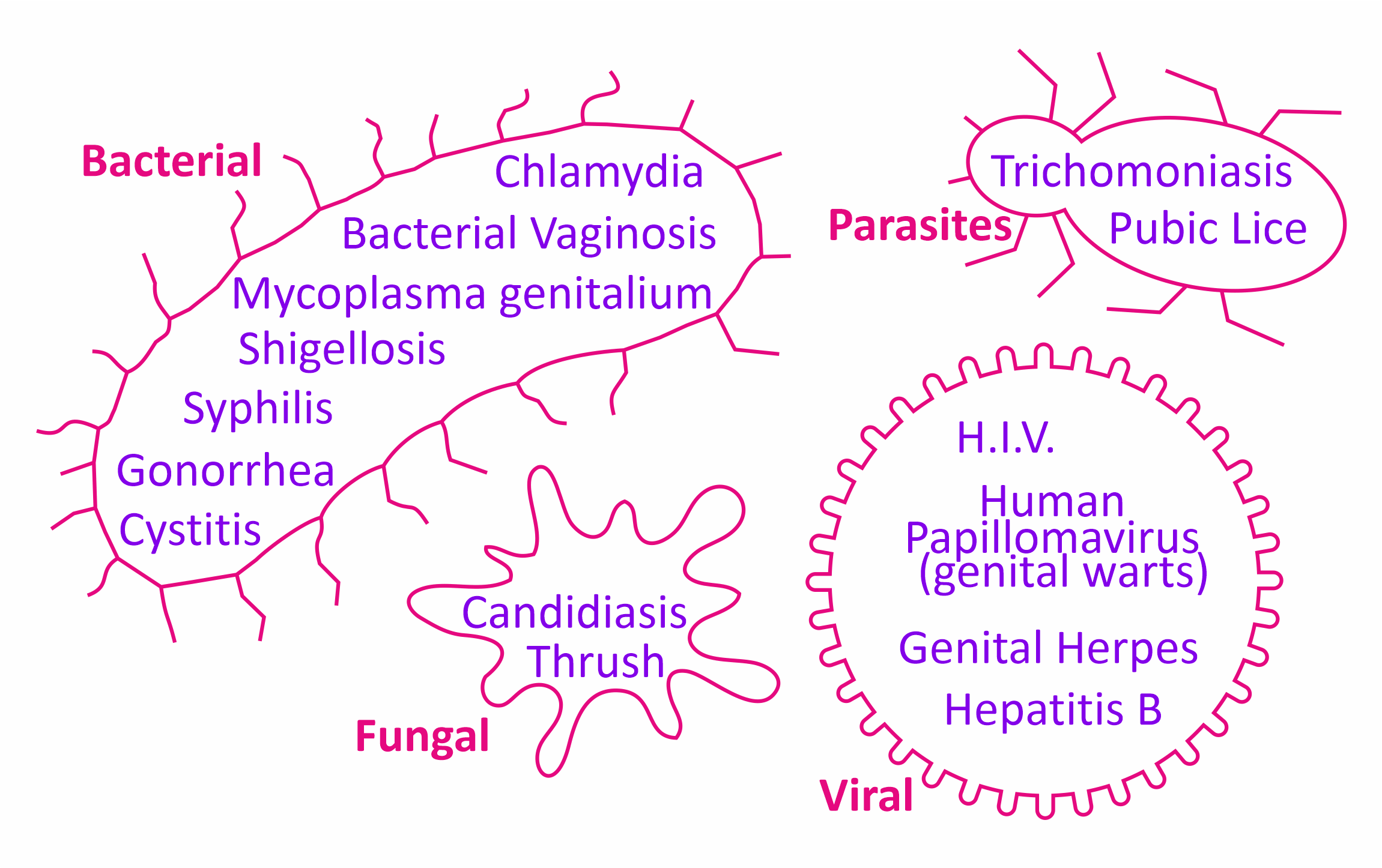Safe Sex and Sexually Transmitted Infections
What are Sexually Transmitted Infections (STIs):
An STI can be acquired through sexual contact, including vaginal, anal and oral sex. This includes sexual contact between men/women, women/women and men/men. Symptoms may not appear immediately which creates a greater risk of passing the disease on to others.
How to practice safer sex:
Of course you are unlikely to get an STI if you don’t have partnered sex. If you are having partnered sex then barrier methods such as external condoms (worn on the penis), internal condoms (worn in the vagina) and latex sheets (used in oral sex) are effective if used correctly. Having a smaller number of sexual partners, or being in a monogamous relationship also decreases the risk. Sensible hygiene procedures such as washing yourself (and sex toys) between uses, partners and/or orifices, keeping fingernails short, and remaining vigilant for risks like cuts, sores and abnormal secretions. The most important thing is to be well educated about sex and STIs, and feel good enough about yourself to communicate freely your wishes and limits.
The Most Common Sexually Transmitted Infections (STIs):
There are excellent free resources offering detailed information on STIs which can be found at NHS Sexual Health Clinics or online (check out: NHS and Sexwise). They far exceed the information that can be provided here. STIs can be classified by type as they can be bacterial, viral, fungal or parasitic.
Awareness, informed decision making, and appropriate precautions can keep you safe.
A complete understanding of the concept of Consent is vital.
More about H.I.V.
The human immunodeficiency virus (HIV) damages the immune system leaving the body unable to fight infections. People don’t die of from HIV, but if left untreated they can get acquired immunodeficiency syndrome (AIDS) which is life threatening. Although there is not yet a cure for HIV, modern treatments can keep it under control so that AIDS-related illnesses are not contracted. Someone with HIV, who is properly treated, can live a typical lifetime. If their viral load has been undetectable for over six months, they cannot transmit the disease. This is known in the medical world as U=U (Undetectable = Untransmissable).
Prevention is better than Cure
Awareness, informed decision making and appropriate precautions can keep you safe from STIs. NHS clinics provide free and confidential advice and testing.


